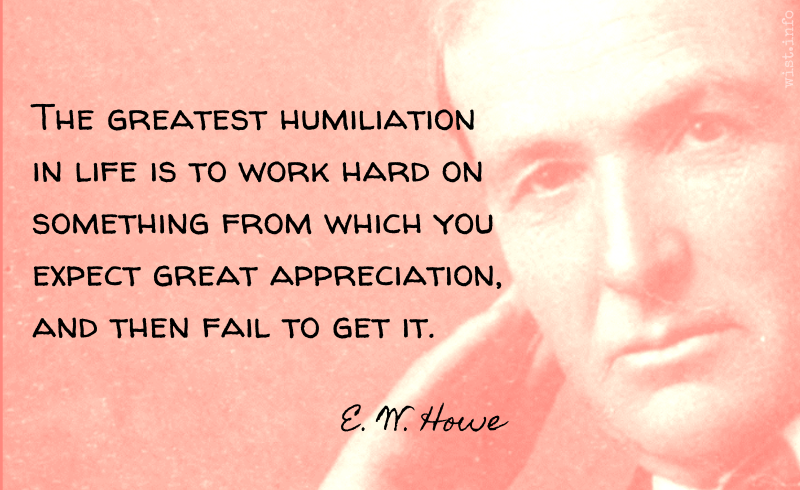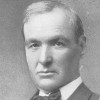All wines don’t turn sour when they get old, and neither do all men or all personalities. I approve of sternness in the old, but a sternness that, like other things, is kept within limits; under no circumstances do I approve of bad temper.
[Ut enim non omne vinum, sic non omnis natura vetustate coacescit. Severitatem in senectute probo, sed eam, sicut alia, modicam; acerbitatem nullo modo.]Marcus Tullius Cicero (106-43 BC) Roman orator, statesman, philosopher
De Senectute [Cato Maior; On Old Age], ch. 18 / sec. 65 (18.65) (44 BC) [tr. Copley (1967)]
(Source)
(Source (Latin)). Alternate translations:
For as every wyne long kept and olde waxith not eagre of his owne propre nature, right so all mankynde is not aygre fell cruell ungracious chargyng nor inportune in olde age of their owne kynde though some men among many be fonde of that condicion. I approve & preyse in olde age the man which hath severitee & stidfast abydyng in hym. Seuerite is contynuance & perseverance of oon maner of lyvyng as wele in the thyngys within as in theym withoute. But I approve nat that in an olde man be egrenesse nor hardnesse & sharpnesse of maners of condicions.
[tr. Worcester/Worcester/Scrope (1481)]
For even as every wine being old and standing long is not converted into vineigre, so likewise is not every age sour, eigre, and unpleasant. Severity and sternness in old age I well allow and commend, so that a moderate mean therein (as in all other things) be observed; but bitterness and rigorous dealing I can in no wise brook nor away withal.
[tr. Newton (1569)]
For as all wines do not grow soure and tart in continuance, so not all age. I like severity in an old man, but not bitternesse.
[tr. Austin (1648), ch. 19]
Our nature here, is not unlike our wine,
Some sorts, when old, continue brisk, and fine.
So Age's gravity may seem severe,
But nothing harsh, or bitter ought to appear.
[tr. Denham (1669)]
In short, as it fares with Wines, so it does with Old Men: all are not equally apt to grow sour with Age. A serious and moderately grave Deportment well become us, but nothing of an austere Severity.
[tr. Hemming (1716)]
Thus it is, for as all Wines are not prick'd by Age, so neither is Human Life sower'd by Old Age; a Severity I approve of in Old Men, but with Moderation; Bitterness by no means.
[tr. J. D. (1744)]
Some Wines sour with Age, while others grow better and richer. A Gravity with some Severity is to be allowed; but by no means Ill nature.
[tr. Logan (1744)]
As it is not every kind of wine, so neither is it every sort of temper, that turns sour by age. But I must observe at the same time there is a certain gravity of deportment extremely becoming in advanced years, and which, as in other virtues, when it preserves its proper bounds, and does not degenerate into an acerbity of manners, I very much approve.
[tr. Melmoth (1773)]
For, as not every wine, so not every life, grows sour by age. Strictness in old age, I approve; but that, even as other things, in moderate degree: bitterness I nowise approve.
[Cornish Bros. ed. (1847)]
Neither every wine nor every life turns to vinegar with age.
[ed. Harbottle (1906)]
For as it is not every wine, so it is not every man's life, that grows sour from old age. I approve of gravity in old age, but this in a moderate degree, like everything else; harshness by no means.
[tr. Edmonds (1874)]
For as it is not wine of every vintage, so it is not every temper that grows sour with age. I approve of gravity in old age, so it be not excessive; for moderation in all things is becoming: but for bitterness I have no tolerance.
[tr. Peabody (1884)]
The fact is that, just as it is not every wine, so it is not every life, that turns sour from keeping. Serious gravity I approve of in old age, but, as in other things, it must be within due limits: bitterness I can in no case approve.
[tr. Shuckburgh (1895)]
Not every wine grows sour by growing old.
Severity in age is well enough:
But not too much, and naught of bitterness.
[tr. Allison (1916)]
As it is not every wine, so it is not every disposition, that grows sour with age. I approve of some austerity in the old, but I want it, as I do everything else, in moderation. Sourness of temper I like not at all.
[tr. Falconer (1923)]
Human nature is like wine: it does not invariably sour just because it is old. Some old men seem very stern, and rightly so -- although there must be, as I always say, moderation in all things. There is never any reason for ill temper.
[tr. Cobbold (2012)]
Certainly neither all wines go sour
Nor do all men because of agedness.
I approve of old men’s calm severity,
But I don’t put up with those who are dour.
[tr. Bozzi (2015)]
The truth is that a person's character, like wine, does not necessarily grow sour with age. Austerity in old age is proper enough, but like everything else it should be in moderation. Sourness of disposition is never a virtue.
[tr. Freeman (2016)]
Quotations about:
bitterness
Note not all quotations have been tagged, so Search may find additional quotes on this topic.
To be misunderstood even by those whom one loves is the cross and bitterness of life.
Henri-Frédéric Amiel (1821-1881) Swiss philosopher, poet, critic
Journal Intime (1849-05-27) [tr. Ward (1885)]
(Source)
Unhappiness makes people vulnerable, incessant suffering unjust. Just as in the relations between a creditor and a debtor there is always an element of the disagreeable that can never be overcome, for the very reason that the one is irrevocably committed to the role of giver and the other to that of receiver, so in a sick person a latent feeling of resentment at every obvious sign of consideration is always ready to burst forth.
Reason allows us to determine when our wishes are in irrevocable conflict with reality, and then bids us to submit ourselves willingly, rather than angrily or bitterly, to necessities. We may be powerless to alter certain events, but we remain free to choose our attitude towards them, and it is in our spontaneous acceptance of necessity that we find our distinctive freedom.
Alain de Botton (b. 1969) Swiss-British author
The Consolations of Philosophy, ch. 3 “Consolation for Frustration”(2000)
(Source)
Bitterness is like cancer. It eats upon the host. But anger is like fire. It burns all clean.
Maya Angelou (1928-2014) American poet, memoirist, activist [b. Marguerite Ann Johnson]
In Mary Chamberlain, ed., Writing Lives: Conversations Between Women Writers (1988)
(Source)
Violence as a way of achieving racial justice is both impractical and immoral. It is impractical because it is a descending spiral ending in destruction for all. The old law of an eye for an eye leaves everybody blind. It is immoral because it seeks to humiliate the opponent rather than win his understanding; it seeks to annihilate rather than to convert. Violence is immoral because it thrives on hatred rather than love. It destroys community and makes brotherhood impossible. It leaves society in monologue rather than dialogue. Violence ends by defeating itself. It creates bitterness in the survivors and brutality in the destroyers.
Martin Luther King, Jr. (1929-1968) American clergyman, civil rights leader, social activist, preacher
Stride Toward Freedom, ch. 11 “Where Do We Go from Here?” (1958)
(Source)
This is no day for the rabble-rouser, whether he be Negro or white. We must realize that we are grappling with the most weighty social problem of this nation, and in grappling with such a complex problem there is no place for misguided emotionalism. We must work passionately and unrelentingly for the goal of freedom, but we must be sure that our hands are clean in the struggle. We must never struggle with falsehood, hate, or malice. We must never become bitter. I know how we feel sometime. There is the danger that those of us who have been forced so long to stand amid the tragic midnight of oppression—those of us who have been trampled over, those of us who have been kicked about — there is the danger that we will become bitter. But if we will become bitter and indulge in hate campaigns, the new order which is emerging will be nothing but a duplication of the old order.
Martin Luther King, Jr. (1929-1968) American clergyman, civil rights leader, social activist, preacher
“Give Us the Ballot,” Speech, Prayer Pilgrimage for Freedom, Washington, DC (1957)
(Source)
As I walked out the door toward my freedom, I knew that if I did not leave all the anger, hatred, and bitterness behind, that I would still be in prison.
Nelson Mandela (1918-2013) South African revolutionary, politician, statesman
(Attributed)
On his release from 27 years behind bars. Quoted by Hillary Clinton from a conversation she had with him.
ORLANDO: But, O, how bitter a thing it is to look into happiness through another man’s eyes!
William Shakespeare (1564-1616) English dramatist and poet
As You Like It, Act 5, sc. 2, l. 45ff (5.2.45) (1599)
(Source)
I never complained that my birthday was overlooked; people were even surprised, with a touch of admiration, by my discretion on this subject. But the reason for my disinterestedness was even more discrete: I longed to be forgotten in order to be able to complain to myself.
I don’t want to be bitter about life — about love and friendship and all the human emotional entanglements. I’ve had more than my share of human disappointments, deprivations, disillusionment. I want to love people and life above all; I want to be able to say always, “if you feel bitter or disillusioned, there is something wrong with yourself, not with people, not with life.”
Bad temper is its own scourge. Few things are bitterer than to feel bitter. A man’s venom poisons himself more than his victim.
Charles Buxton (1823-1871) English brewer, philanthropist, writer, politician
Notes of Thought #560 (1873)
(Source)
The greatest humiliation in life, is to work hard on something from which you expect great appreciation, and then fail to get it.
Edgar Watson "Ed" Howe (1853-1937) American journalist and author [E. W. Howe]
Ventures in Common Sense, “Miscellany of Life” (1919)
(Source)
O poor mortals, how ye make this Earth bitter for each other; this fearful and wonderful Life fearful and horrible; and Satan has his place in all hearts! Such agonies and ragings and wailings ye have, and have had, in all times: — to be buried all, in so deep silence; and the salt sea is not swoln with your tears.
Thomas Carlyle (1795-1881) Scottish essayist and historian
The French Revolution: A History, Part 1, Book 5, ch. 5 (1.5.5) (1837)
(Source)
As the prospect of violence mounts within Paris on the night of 13 July 1789. The next day was the storming of the Bastille.
Remember too on every occasion which leads thee to vexation to apply this principle: not that this is a misfortune, but that to bear it nobly is good fortune.
Marcus Aurelius (AD 121-180) Roman emperor (161-180), Stoic philosopher
Meditations, Book 4, #49 [tr. Long]
(Source)
Alt. trans. [Staniforth (1964)]: "Here is a rule to remember in the future, when anything tempts you to feel bitter: not, 'This is a misfortune,' but 'To bear this worthily is good fortune.'"
And if I laugh at any mortal thing,
‘Tis that I may not weep.




















